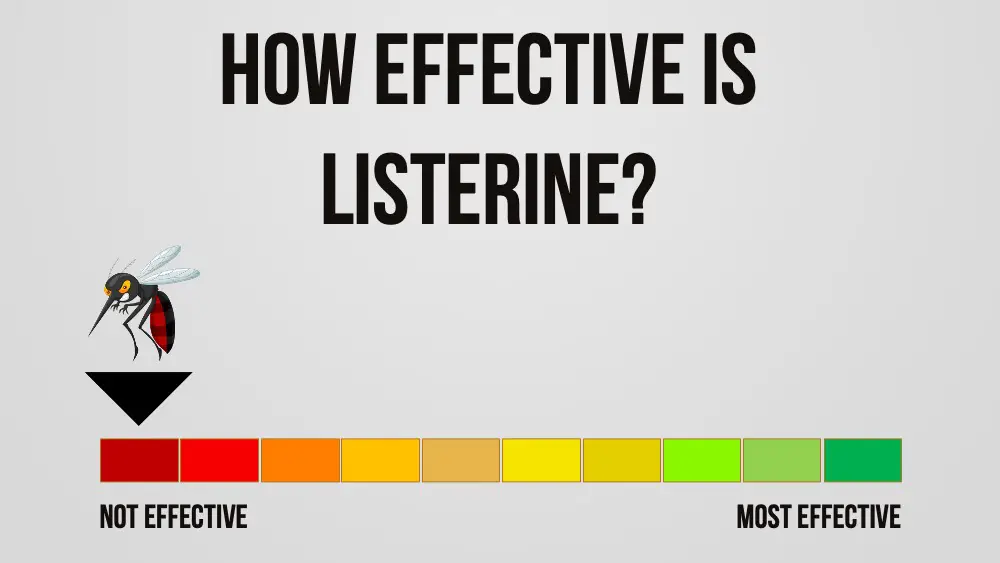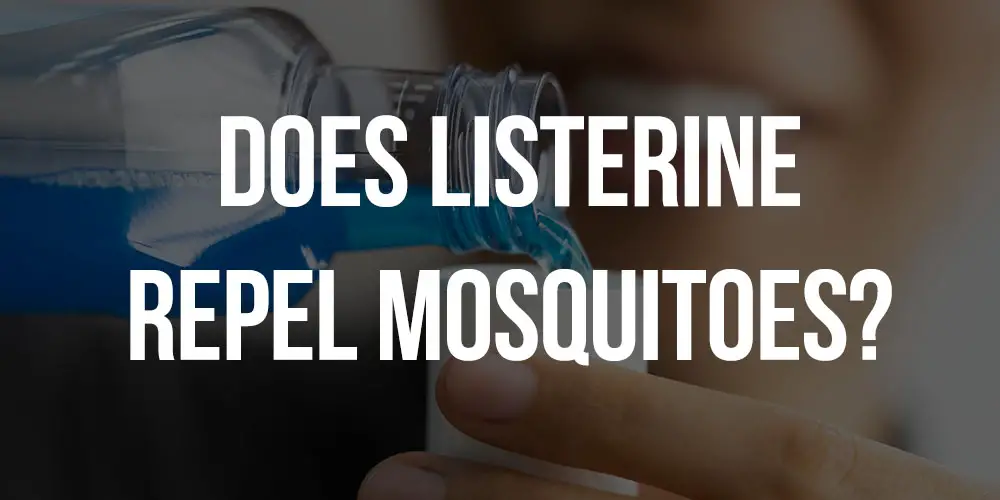The short answer is no, Listerine does not repel mosquitoes.
While the strong scent of Listerine may mask your natural odor and make you less attractive to mosquitoes, it will not keep them away.
There are a few products on the market that claim to use essential oils to repel mosquitoes, but there is no scientific evidence to support their efficacy.
If you are looking for a natural way to keep mosquitoes at bay, try planting citronella in your yard or using a mosquito net when outdoors.
Navigation
Does Listerine Get Rid of Mosquitoes?
Again the answer is no, Listerine does not get rid of mosquitoes. The mouthwash may make you less attractive to the pests, but it will not keep them away.

Does Listerine Kill Mosquitoes?
No, Listerine does not kill mosquitoes. But, it may mask your natural odor and make you less attractive to them.
While the strong alcohol content in Listerine may kill some bacteria on your skin, it will not have any effect on mosquitoes.
If you are looking for a product to kill mosquitoes, try using an insecticide or mosquito trap.
The best way to prevent mosquito bites is to avoid being outdoors in areas where mosquitoes are present.
If you must be outdoors, wear loose-fitting, long sleeves and pants, and use a mosquito repellent.
Listerine Mosquito Spray Recipe
In spite of the findings that Listerine does not help as a mosquito repellent. We have found recipes to try on your own:
Ingredients
- 1 cup Listerine mouthwash
- 1 cup water
- 1 teaspoon lemon juice
- 1/2 teaspoon eucalyptus oil
Instructions
- Combine all ingredients in a spray bottle and shake well.
- Spray liberally on ground where sitting.
Does Spraying Listerine Keep Mosquitoes Away?
Sadly, the mouthwash does not keep mosquitoes away. If you are looking for a way to keep mosquitoes in the yard at bay, repellents that contain DEET, picaridin, oil of lemon eucalyptus, or IR3535 are effective at preventing mosquito bites.
We suggest consulting the EPA’s searchable database for a list of mosquito repellents that are registered and approved for use in the United States.
Products such as OFF! Deep Woods® Insect Repellent VIII, Sawyer Premium Insect Repellent with 20% Picaridin, and Ultrathon Insect Repellent Lotion are effective at repelling mosquitoes.
When applied properly, mosquito repellents are safe to use on adults and children over the age of 2 months. Follow the instructions on the product label when applying repellent to adults and children.
Repellents should be used as part of a comprehensive mosquito-control strategy that includes eliminating breeding sites and protecting yourself from mosquito bites.
If you have any questions about using Listerine or other products to repel mosquitoes, please contact your local Cooperative Extension office for more information.
What is Listerine Beer Mosquito Repellent?
Listerine beer mosquito repellent is a homemade mosquito repellent made with Listerine mouthwash, beer, and lemon juice. The recipe has not been tested for efficacy against mosquitoes. Use at your own risk.
Ingredients
- 1 cup Listerine mouthwash
- 1 cup beer
- 1 teaspoon lemon juice
Instructions
- Combine all ingredients in a spray bottle and shake well.
- Spray on ground where sitting.
- Keep spraying as needed.
As you can see, Listerine does not work as an effective mosquito repellent.
If you are looking for a product to keep mosquitoes away, try using an insecticide or mosquito trap. As an alternative use natural mosquito repellents like lemon eucalyptus oil, coconut oil, or lemongrass.

